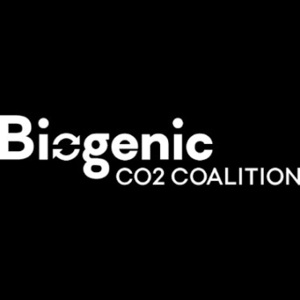EPA urged to address treatment of biogenic emissions from crops




June 11, 2020
BY Erin Krueger
The Biogenic CO2 Coalition sent a letter to U.S. EPA Administrator Andrew Wheeler on June 9 urging the agency to seek public comments on the regulatory treatment of biogenic CO2 from annual agriculture crops.
The letter references a proposed rule currently under White House Office of Management and Budget review that would classify wood biomass as carbon neutral. “Doing so would be a positive first step towards acknowledging that biogenic emissions are not a net source of greenhouse gas emissions,” the coalition wrote. “But that proposed rule would miss an opportunity to provide the same clarification for an additional category of feedstocks that is just as carbon neutral: annual agricultural crops.”
Advertisement
Advertisement
In the letter, the Biogenic CO2 Coalition said that the bioeconomy is an important, growing source of jobs and economic development in in rural America, but stressed that some “unsound regulatory roadblocks” are holding the sector back. “One such roadblock is EPA’s failure to make clear that processing agricultural crops makes no more than a de minimus contribution to carbon emissions, which results in costly regulatory and permitting requirements that discourage investment,” the coalition continued.
“The science is clear that, like woody biomass, annual agricultural crops are not a net source of carbon emissions,” the coalition wrote. “Indeed, the main relevant difference between woody biomass and annual agricultural crops is that annual crops grow to maturity in a single year—carbon emitted from processing of annual agricultural crops is therefore replaced rapidly when the next year’s crops are grown. The Department of Agriculture, the IPCC, and various researchers have each recognized that the carbon sequestered by growing agricultural crops cancels out or even outweighs the carbon emitted when those crops are processed. And EPA has recognized the same in other regulatory programs that rely on the GREET model.”
Advertisement
Advertisement
The letter urges EPA to seek comment in the pending proposed rule on the carbon neutrality of annual crops and on whether facilities that process these annual crops should be exempt from implementing BACT and other requirements of the PSD and Title V programs for the greenhouse gases emitted from the processing of annual crops.
Members of the Biogenic CO2 Coalition include the American Farm Bureau Federation, Corn Refiners Association, National Corn Growers Association, National Cotton Council of America, National Cottonseed Products Association, National Grain and Feed Association, National Oilseed Processors Association, North American Millers’ Association, and Plant Based Products Council.
Related Stories
The U.S. Department of Energy Bioenergy Technologies Office (BETO) announced up to $23 million in funding to support research and development (R&D) of domestic chemicals and fuels from biomass and waste resources.
The U.S. DOE has announced its intent to issue funding to support high-impact research and development (R&D) projects in two priority areas: sustainable propane and renewable chemicals and algal system cultivation and preprocessing.
Sens. Sherrod Brown, D-Ohio, and Pete Ricketts, R-Neb., in August introduced the Renewable Chemicals Act, a bill that aims to create a tax credit to support the production of biobased chemicals.
The Chemical Catalysis for Bioenergy Consortium, a consortium of the U.S. DOE’s Bioenergy Technologies Office, has launched an effort that aims to gather community input on the development of new biomass processing facilities.
USDA on March 8 celebrated the second annual National Biobased Products Day, a celebration to raise public awareness of biobased products, their benefits and their contributions to the U.S. economy and rural communities.
Upcoming Events










